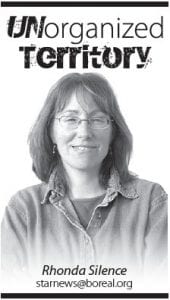I have only the foggiest of memories of my grandfather, Martin Bockovich. He died when I was just six years old, so it’s hard to know what I remember or what I’ve learned from my parents and aunts and uncles about him. But thinking of him makes me smile.
I have vague recollections of his welcoming grin and twinkling eyes as he threatened to give whisker rubs. I remember his unfiltered cigarettes and his treat box inscribed with “Only for the well-behaved and good.”
I’m sure all of the grandchildren that clamored to sit in his lap or followed him around the barn, begging to feed the animals, were not always well-behaved and good. But we all received treats anyway.
What is not foggy about my grandpa is that he loved all of us kids, the rowdy roughhousing boys and the quiet book loving girls. I don’t remember him saying it out loud, but we just knew.
I also remember that he was a hard worker, although again, I’m not sure how much is memory and how much is imagination fueled by photos of him at work. One of my favorite pictures of my grandfather shows him hard at work, hitching up a team of horses to massive white pine logs to drag across the snow-covered ground. It must have miserably cold and dirty work. But none of his children, my dad or my aunts or uncles, talk of him ever complaining.
And it would seem that he had a lot to complain about. Things must have been really bad in the “Old Country.” In 1905, at the age of 15, his family sent him from the Austrian- Hungarian region to America— alone aboard the RMS Carpathia, through Ellis Island, to find his way to relatives in Minnesota. My cousin did some research and found a copy of the page that my grandfather signed when he entered America. He had less than ten dollars to his name. How he found his way to the people waiting for him on the North Shore of Lake Superior is a mystery.
There are some gaps in my grandfather’s history and in my memories of him. So it is heartwarming to find snippets of information about him.
A few years ago, Percy Nicolaison, sadly also gone now, told me a sweet story about my grandparents. Percy was a neighbor on Good Harbor Hill and she recalled stopping by their farm one Halloween to find both Martin and Tressie wearing black glasses and fake noses, ala Groucho Marx! Their silliness explains a lot about our family’s odd sense of humor.
Then, a few weeks ago, my grandfather got a mention in Down Memory Lane. Writer/archivist Bill Neil does a wonderful job finding the little pieces of history in the News-Herald records. All of us in the office chuckle—or are saddened— by the things that happened in our community 10 years, 20 years, 100 years ago or more.
I was tickled to see this News- Herald blurb from Jan. 4, 1923, 90 years ago:
Martin Bockovich and Ted Linnell passed through town this week with several teams on their way to Caribou Lake to dismantle the old sawmill formerly used by Arvid Erickson. It has been purchased by Mr. Linnell and will be moved to Mineral Center
It is an intriguing bit of information. Ted Linnell was my grandmother Tressie’s brother. Were they married when my grandfather and my great-uncle set out on this adventure? How long did it take them to dismantle a sawmill and haul it from Lutsen to Grand Portage? How did they even know there was a sawmill for the taking so far away? How cold was it while this was happening? Did they talk to the pesky reporter who felt this was newsworthy?
I may never learn the answers, but it is evidence of what I remember about my grandfather being a hard working fellow.
I learned a little more about him this week when Grand Marais resident Bob Pratt stopped by the News-Herald office. I don’t know how we got on the subject of my grandfather, but I’m so glad we did. Bob shared an amazing memory he has of my grandfather.
Bob asked if I know of the house belonging to Ralph and Dorothy Jackson. I didn’t, but he explained it is a few blocks up 5th Avenue (the old Gunflint Trail). The house actually now has a little sign out front declaring that it is “The Jackson House.”
Once I realized what house he was talking about, Bob explained that at one time the house did not have a basement. The homeowner wanted one and hired my grandfather to dig it—which he did with a horse and a piece of equipment that was a cross between a wheelbarrow and a shovel. Bob said he was a little boy at the time and he was fascinated by the project. He said he enjoyed watching Martin working with the horse, digging and digging, completing a basement with just man and horsepower.
A very hardworking man. I guess my memories aren’t so foggy after all.
Some of the world’s best educators
are grandparents.
Charles W. Shedd



Loading Comments